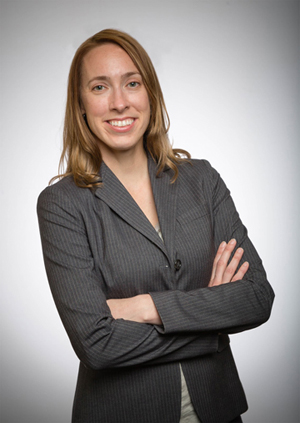July 2017 Newsletter
TYING THE KNOT? OR JUST MOVING IN?
By Bob Mason
 When a client tells me that he or she is considering a second marriage, for terribly unromantic reasons (I guess I’m the anti-cupid...darn lawyer!) I recommend that the client plan carefully—very carefully—before going into a later-in-life second marriage. The religious prescription not to enter a marriage “unadvisedly or lightly” applies in spades to a later marriage.
When a client tells me that he or she is considering a second marriage, for terribly unromantic reasons (I guess I’m the anti-cupid...darn lawyer!) I recommend that the client plan carefully—very carefully—before going into a later-in-life second marriage. The religious prescription not to enter a marriage “unadvisedly or lightly” applies in spades to a later marriage.
“Bob,” the client may ask, “are you suggesting we see an attorney before the preacher?” And I would answer: “Yes.”
Here’s why.
Some of the biggest and most expensive messes (I like the term “elder law train wreck”) I have had to clean up have been after the death of a second spouse when there was little or no advance planning.
Adult step-siblings (who may not even know or like each other) can be counted on to fight for whatever it is that they believe their natural parents accumulated for them.
Most of the “planning” that I have seen is a simple verbal agreement that “what is yours is yours, and what is mine is mine.” Lawyers know that won’t cut it. All couples are different, but here is a partial list of issues that may be important.
Estate Plans
The worst plan might be simple “I love you wills” that leave everything to the surviving spouse with the understanding that she will “do the right thing.” Even with wills that leave everything to the children of the deceased spouse, there may be problems with an elective share statute.
North Carolina has a mean elective share statute. The elective share statute enables a surviving spouse to “elect” a share of around 1/3 of the deceased spouse’s estate if he or she does not like what was left in a will.
In fact, one South Carolina case (testing a statute comparable to NC’s) made waves a few years ago:
The deceased founder of Hooters (you know...the restaurant famous for...large burgers and chicken wings) left $1 million a year for 20 years to his fairly younger surviving spouse. She felt $20 mil wasn’t enough, so she elected for 1/3 of Mr. Hooter’s estate. Mr. Hooter’s son (not the widow Hooter’s son, by the way) objected and claimed the South Carolina elective share statute (which is very similar to North Carolina’s) is unconstitutional. Yours truly believes that argument had as much chance as a Hoot Owl in, well, Horry County. Hooter Jr. and the widow Hooter settled for an undisclosed sum.
Those sorts of difficulties can be addressed in a prenuptial (or premarital) agreement.
The Family Home
Naturally the newlyweds do not want to see the bride or groom evicted upon the death of the other. On the other hand, children can become quite emotional over what may be perceived as “their home.” Chances are, putting the house in both spouses’ names is not a good idea. Read this for a very scary story (based on Mason Law facts). Advise a life estate, or maybe a trust.
Social Security Benefits
Remarriage can affect the Social Security benefits a newlywed was receiving under a deceased or divorced spouse’s account. If a divorce happens after ten years or more of marriage, a spouse can collect retirement benefits on the former spouse’s Social Security record if he or she is at least age 62 and if the former spouse is entitled to or receiving benefits. If a client remarries before age 60, however, he or she generally cannot collect benefits on a former spouse’s record unless the later marriage ends (whether by death, divorce, or annulment).
Annuities and Survivors Pension Payments
Your client may be kissing a hefty survivor’s pension (corporate or military) goodbye when he or she kisses a new spouse. Advise checking those out before heading to the altar.
Income Taxes
There may be some tax planning advantages to marrying if estate taxes are a concern because many planning techniques are available to married couples only. Income taxes might also drop if one spouse is earning significantly more than his or her new spouse. On the other hand, many income tax breaks phase out for couples at less than twice the phase-out level for a single person.
Long Term Care (Nursing Home) or Medicaid Planning
This is a big consideration for older people considering remarriage. Medicaid rules and regulations do not care at all what sorts of plans or promises a couple has made when it comes to Medicaid and nursing home benefits. A carefully drafted prenuptial agreement is worthless. All Medicaid programs consider the combined assets of the couple. While rare, some couples have divorced within a few years of marriage when one spouse in declining health (usually the “poorer” spouse) has entered a nursing home.
It may be sad to see, but some couples are electing to do exactly what they would have DIED seeing their children do 30 years ago...”living in sin.”
Spotlight: Trademark Law Specialist Rebecca Crandall
What is most challenging about your work?
 I’d say the most challenging part of my job relating to trademark work is education. Some potential clients have a hard time understanding that it’s much less expensive to understand and protect their trademark rights up front than to step into a not so great situation later on. If they choose a generic name for their business, they simply aren’t going to be able to avoid their competitors using the same term to describe their own businesses.
I’d say the most challenging part of my job relating to trademark work is education. Some potential clients have a hard time understanding that it’s much less expensive to understand and protect their trademark rights up front than to step into a not so great situation later on. If they choose a generic name for their business, they simply aren’t going to be able to avoid their competitors using the same term to describe their own businesses.
What is fun about your work?
Education! As difficult as it is to explain some of the finer nuances, I absolutely love teaching people about trademark law—whether that’s in a formal classroom setting (I teach brewery law at the Craft Beverage Institute of the Southeast and two of my classes are about trademarks), a speaking engagement at the chamber of commerce or another local group, or counseling my clients during our meetings. Thoughtful questions from people who really want to do the right thing are the best.
What led you to become a lawyer?
When I was in fourth grade, I decided it was time for me to logically select a profession. I really wanted to be on Broadway, but that seemed impractical. I thought about what I enjoyed—reading, writing, public speaking, and problem solving (yes, I set aside singing, dancing, and acting). When my parents took me along to meet a lawyer about their wills, I knew immediately that it would be a good fit. Now, nearly 30 years later and 13 years into practicing, I’d say it was definitely a good choice for me.
What made you decide to pursue certification?
I took the trademark certification exam the first year it was offered after a few others who planned to pursue certification at the same time encouraged me to do so. As the only board certified trademark specialist in western North Carolina, I find that it’s a helpful shorthand to explain to potential clients why working with me is a better choice than working with attorneys who focus on other areas and aren’t as likely to spot some of the less understood nuances of trademark law.
What is it like to work with clients seeking trademarks or involved in trademark disputes?
Working toward registration is usually exciting. It’s wonderful to help clients get to that goal so that the world is on notice of their trademark claims. Disputes can get exciting in a different way. Have you heard of a trademark lawsuit getting through trial for less than six figures? Me neither. Even if money is no object, juries can’t reasonably be expected to fully understand trademark law with only an hour (or less) of listening to jury instructions. It’s also difficult to balance streamlining a trial to keep the jury involved against getting in all the evidence that supports your arguments. And deciding when to potentially look like a jerk to the jury by objecting to opposing counsel’s activities is no cake walk. I encourage clients right from the outset to try to reach a reasonable solution before suit is ever filed, and to continue considering settlement throughout the litigation process.
What activities/volunteer groups are you involved in?
My most time consuming activity this year has been teaching brewery law at the Craft Beverage Institute of the Southeast. What fun! I look forward to seeing my students over the years as employees of my clients and then as clients themselves when they decide to open their own places. I also enjoy serving on the board at Mountain Bizworks, a nonprofit community development financial institution (CDFI), and Asheville Community Theatre, one of the oldest community theatres in the US and currently working on a capital campaign for a long overdue expansion. I serve as a specialist mentor for the Elevate Program through Venture Asheville, a great program to enable startup entrepreneurs to build great companies. In the legal community, I assist the NCBA’s Intellectual Property Section’s Trademark/Copyright/Trade Secrets Committee with planning education events, including planning and teaching a NC Bar Association CLE last year, “Don’t Brew Up Trouble: Trademark and Advertising Issues in the Craft Beverage Industry.” In my spare time, I enjoy spending time with my family and friends, traveling (45 Century Club countries visited and counting), trying all the best Asheville (and other) beers, sewing, and watching truly terrible TV shows.
Who is your role model and why?
I’m cheating—I have two. The first is my mom, Linda Crandall. She’s a retired high school teacher, and she taught me to appreciate education, make great family memories, love travel, and be an educated voter. The second is my boss, Sabrina Presnell Rockoff, McGuire Wood & Bissette’s managing partner. She graduated from A.C. Reynolds High School in Asheville just two years ahead of me, and look at her now. She became the first female managing partner in Asheville’s oldest law firm after demonstrating her amazing legal talents at large firms in New York and Raleigh. She always makes time for her amazing family, all the while maintaining a great practice, leading the firm, and mentoring younger attorneys in the firm. She even finds time to run, practice yoga, and actively participate in her religious community. How does she do it? I’m taking notes, Sabrina.
Specialist Directory Makes Useful Referral Tool
Did you know there is an easy way to recommend another North Carolina Board Certified Specialist? Our directory of specialists enables you to search and find lawyers by a practice area or city. Best of all, you can share their contact information with the click of a button. To do so, click the lawyer’s name, then click on one of the share buttons to the right (Facebook, Twitter, email, etc.). The recipient will see a link to that lawyer’s page in our directory.
When someone contacts you for an area of law in which you do not practice, use this new share feature to recommend a fellow specialist. Working together, we can raise the public’s awareness of specialty practice.